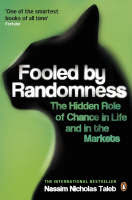Once again the quality press seems uncertain about intellectual property, and in particular the role of trade marks in the drug business. This time it is The Economist. In an article from its August 8 issue, entitled “Friends for Life: Big Drugs Firms Embrace Generics”, the magazine described the intertwining of Big Pharma with generic manufacturers as the impending expiry of blockbuster-protected patents and apparently thin patent pipeline for drugs are forcing both sides to rethink the nature of their relationship/interrelationship.
What caught my attention was the discussion in the article about the issue of “branded” versions of drug products that are being sold by Big Pharma after patent protection has expired. So is this a good or bad thing? It is a difficult to fathom from the article. Let’s consider how the issue is treated. First, the article observes as follows: In order to combat the expected decline in revenues, Big Pharma is “peddling “branded” (but not patented) versions of their original drugs for higher prices than unbranded equivalents. Illogical though it may seem, such is the power of brand loyalty and inertia among doctors and patients ….”
Here we find Big Pharma as “peddlers” of generic brands, and both doctors and patients as acting in an “illogical” manner. Nothing is seemingly new about the negative tone given to the role of trade marks. From the debates in Parliament 150 years ago at the dawn of the first English trade mark law, through the skepticism towards trade marks expressed by the US Justice Department and others prior to the enactment of the Lanham Act in the 1940s, and up to Naomi Klein's polemic No Logo here, there has been a view that trade marks have the power to compel people to buy at a premium what they rationally would not purchase, i.e. a branded product.
But the article then seems to change direction. Moving on, it later observes that “[t]he real action now is in branded generics, which command a premium in many emerging markets due in part to the fear that unknown products might be fake or of dubious quality.” Note that here trade marks serve a potentially useful purpose for “emerging markets” (not the developed world, who presumably know better) in assuring that the drug products are genuine. I must confess that I don’t quite understand the point here. If I want to sell a counterfeit drug product, it seems to me that I will simply imitate the proprietary brand. As a policy matter, if I want to prevent the counterfeiting of drugs, it seems that the better way is to ban the use of the mark after the expiry of the patent protection period. In this way, the counterfeiter cannot exploit the name recognition and goodwill developed in connection with the drug during its proprietary period.
But all is not lost for Big Pharma, even in developed countries. The article concludes by referring to Charles-Andre Brouwers of the Boston Consulting Group, who notes as follows: “[B]rand loyalty laziness--or laziness--is something drug marketers can tap to keep a premium in their prices." As he puts it: ‘The secret about this industry is that patients taking a red pill don’t really like switching to a blue pill’. “While consumers are no longer “illogical”, they are “lazy”, and this consumer slothfulness can be exploited to the commercial advantage of Big Pharma.
Not too much doubt here: except for developing countries (even the basis for the argument is questionable), branded generics [read: trade marks] are cast in a negative light.  However, before we condemn “branded” generics” to the Dark Side, we might consider the following observation by Nassim Nicholas Taleb in his irreverent best-seller, Fooled by Randomness here (fooled you if you were expecting The Black Swan).
However, before we condemn “branded” generics” to the Dark Side, we might consider the following observation by Nassim Nicholas Taleb in his irreverent best-seller, Fooled by Randomness here (fooled you if you were expecting The Black Swan).
In discussing what he calls “the path dependence of beliefs”, and what economists call, in a somewhat different context, the "endowment effect”, Taleb observes “[t]hat there are reasons to believe, for evolutionary purposes, we may be programmed to build a loyalty to ideas in which we have invested time…. Researchers found that purely rational behavior on the part of humans can come from a defect in the amygdale that blocks the emotions of attachment, meaning the subject is, literally, a psychopath.”
If these observations can be applied to trade marks, perhaps “branded” generics are an expression of evolutionary make-up. Instead of being "illogical", a sign of "laziness", or worse, the relationship of doctors and consumers to branded generics reaches deep into our human psyche. At the least, it suggests that the issue of trademarks in connection with branded generics is far more textured than the article suggests. In truth, when one thinks about trade marks, that is not such a surprising, or radical conclusion--is it?
1 comment:
When a patent on a pharmaceutical product expires it is customary for the original patent owner to continue to market the product under is brand/trade mark name. For non-prescription medicines the public tend to continue to buy the branded product as they seldom know the generic name. Few pharmacists advise their customers of potential cost saving by buying genrics as these have a lower profit margin. Sales of "Panadol" brand paracetamol and "Aspro" brand aspirin flourish. In the UK the BNF ensures that doctors do not fall into this trap; they must prescribe the generic if available.
Post a Comment